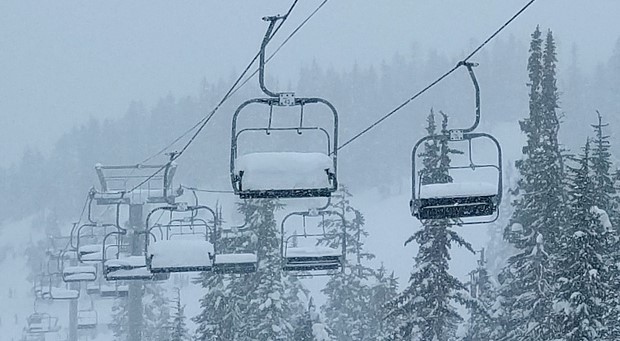Information Intelligence | Hans-Ruedi Hertig
Informationen intelligenter qualifizieren
Winter Tourism: Success with Feedback based Strategy and Service Quality
 Swiss winter tourism is battling to hold the levels of recent decades. In the seventies volumes were 1/3rd higher. In this view, the gains this season are deceptive. Skiing days have been decreasing since 10 years. Overnight stays in the Swiss Alps are down by 1/4th since 1992. For the Swiss mountain transportation facilities the last years were the worst within the last quarter of a century. Obviously it is neither clear what the market wants nor where the own bases for competitive distinction are and how this should be implemented with comprehensive strategies. Instead meaningless guest surveys pretend that all is well with Swiss winter tourism.
Swiss winter tourism is battling to hold the levels of recent decades. In the seventies volumes were 1/3rd higher. In this view, the gains this season are deceptive. Skiing days have been decreasing since 10 years. Overnight stays in the Swiss Alps are down by 1/4th since 1992. For the Swiss mountain transportation facilities the last years were the worst within the last quarter of a century. Obviously it is neither clear what the market wants nor where the own bases for competitive distinction are and how this should be implemented with comprehensive strategies. Instead meaningless guest surveys pretend that all is well with Swiss winter tourism.
Mountain tourism is booming elsewhere: Corporations such as Vail Resorts which in 2016 bought Whistler Blackcomb are commercially successful with continuous growth in both value and rentabilty. They plan to invest over USD 300 Millions “merging nature and innovation to reveal a whole new way to play in our mountains; year-round, regardless of the weather”. Blaine County (ID) with its major brand “Sun Valley” is implementing a strategy to “leverage the Sun Valley brand”. Jackson Hole (WY) is focusing “values” in the broadest sense to recover from the crisis of 2009.
Obviously a tourism strategy as outlined by the former head of the Swiss Economic Policy Directorate, Aymo Brunetti, based on “premium services” and “premium quality” is not what local politicians from rural and alpine areas in Switzerland aim for. They appear to focus income transfers to their electorate: E.g. the canton of Wallis/ Valais intends to subsidy transportation facilities with CHF 15 Mio yearly. Thus investment decisions tend to be based on subsidies – currently also very low lending rates – rather than market perspectives.
A first step for a turnaround in Swiss alpine tourism is to establish valid and reliable feedback related to the perception of guests and potentials. However as long as marketing research and quality management are of unsufficient relevance in the context of management, strategy and marketing curricula or based on outdated textbook contents there is little hope for young professionals to tackle their tasks with open enough eyes.
Bildquellen:
- Tourismus: Ruth and Dave via Foter.com CC BY